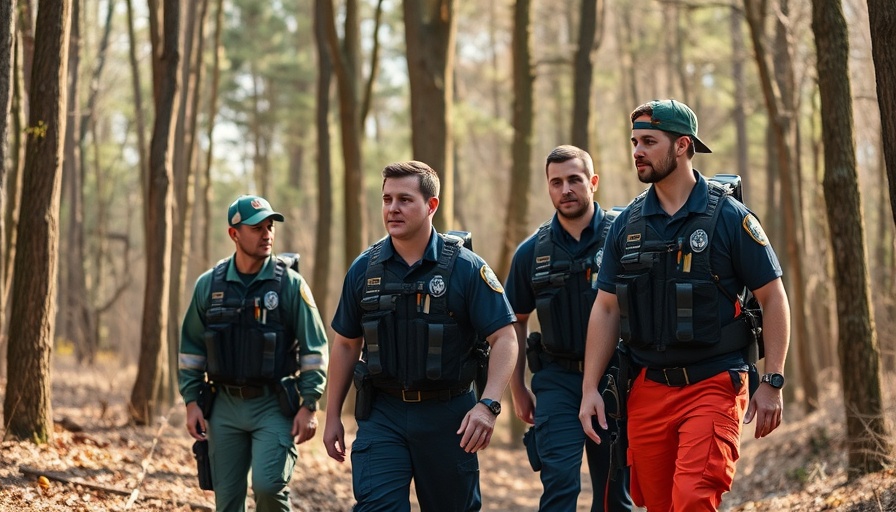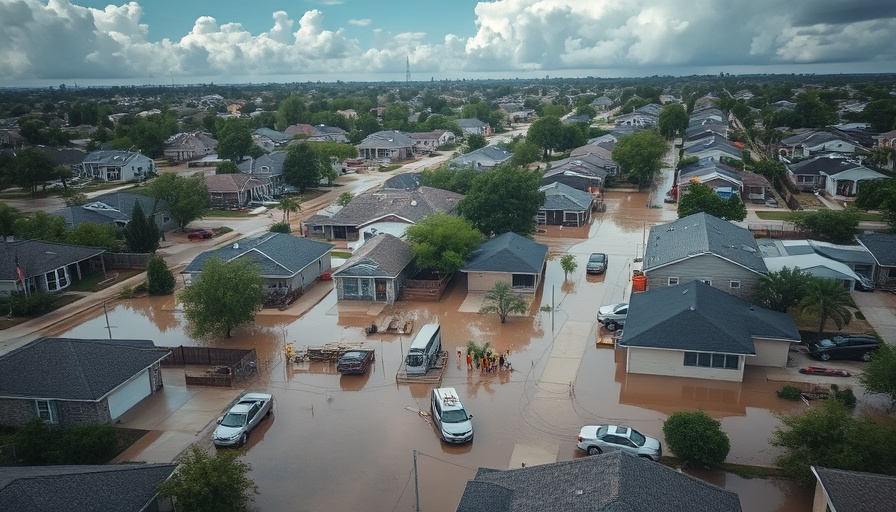
Understanding Mental Health Needs in Crisis Situations
In the wake of the devastating floods in the Hill Country, Texas, first responders are not only tasked with rescuing lives but also grappling with the emotional toll of their work. As Lt. Col. Ben Baker from the Texas Game Wardens notes, mental health support has become an essential focus for first responders engaged in long, strenuous recovery efforts. The emotional weight of witnessing loss, especially of vulnerable individuals like children, is profound and demands careful attention.
Peer Support: A Pillar in Mental Health Recovery
Amid the chaos, Preston Kinikin, a certified first responder chaplain, emphasizes the importance of establishing peer-to-peer support networks within communities. This nurturing of connection serves as a critical lifeline for those on the front lines. Kinikin has successfully founded organizations such as Warriors of Ramoth, where veterans and first responders can openly discuss their experiences and trauma, promoting healing through shared understanding.
Resources for First Responders: Finding Help
Seeking assistance is vital for first responders facing potential PTSD. Texas boasts several resources for mental health support, including:
These organizations provide avenues for first responders and their families to find targeted support amidst the overwhelming challenges they face.
Long-Term Effects of Trauma in Emergency Workers
As the community rallies together to support first responders, it is crucial to understand the long-lasting effects of trauma on their mental health. Experts advise families and peers to remain vigilant in recognizing potential signs of PTSD, such as irritability, anxiety, or withdrawal. These manifestations may surface weeks or even months post-crisis, and early intervention can be key to a healthier recovery.
Encouraging ConversationsAbout Mental Health
Creating a culture that destigmatizes mental health discussions is paramount. By breaking down barriers around mental health, communities can foster a sense of safety within which first responders feel comfortable seeking help. Educational efforts by organizations like Kinikin’s Warriors of Ramoth play a vital role in changing perceptions and encouraging open dialogue.
The Importance of Leadership in Supporting Mental Health Initiatives
Leadership within emergency response agencies must prioritize mental health strategies as a component of their operational protocols. Lt. Col. Baker's commitment to maintaining wellness among his team reflects a progressive understanding that healthy responders lead to effective crisis management. As agencies implement cohesive wellness programs, they foster an environment where first responders can thrive amidst adversity.
The commitment to addressing mental health needs during times of crisis forms the foundation for a supportive community environment. As the Hill Country continues to recover, ongoing support for those who risk their lives to protect it will be pivotal in ensuring both their physical and mental well-being.
For those struggling with mental health issues, don’t hesitate to reach out. Contact Hill County Mental Health at 877-466-0660 for a 24/7 helpline and explore the resources available in the area.
 Add Element
Add Element  Add Row
Add Row 



 Add Row
Add Row  Add
Add 


Write A Comment